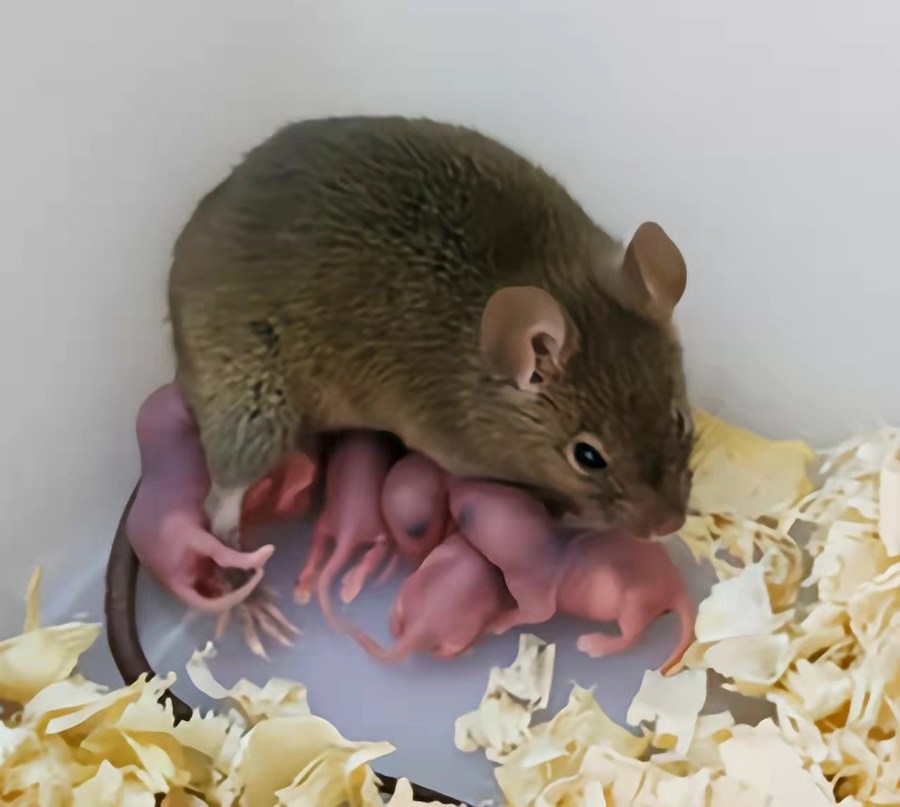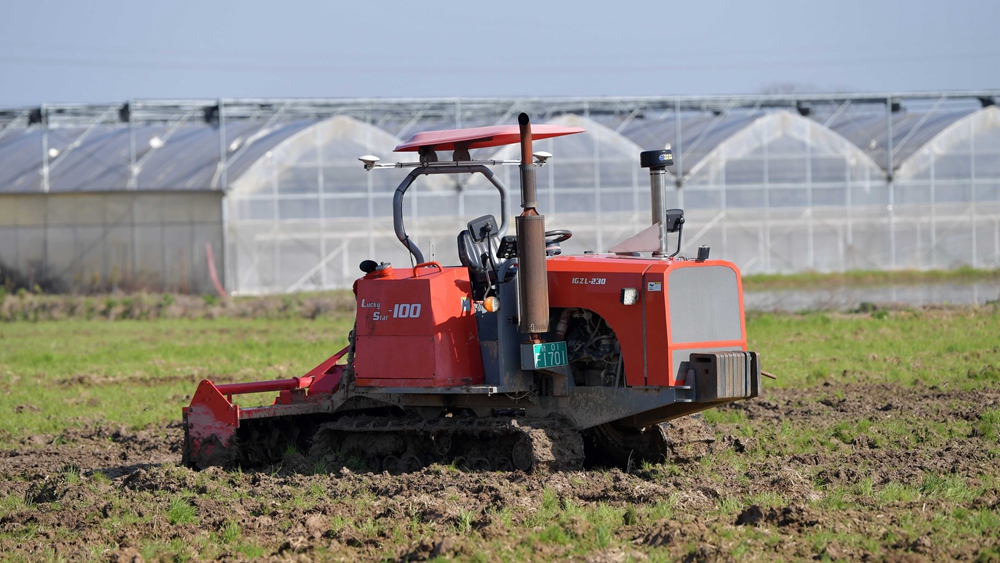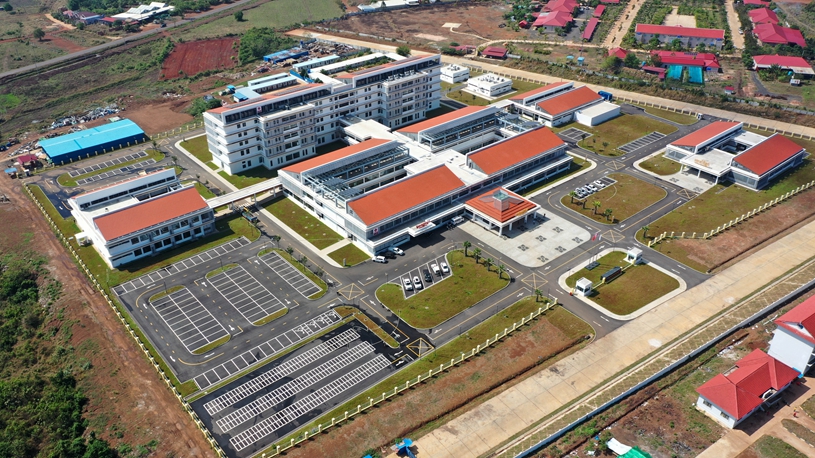
The mouse that derived from a single unfertilized oocyte grew to 4.5-month old and gave birth to her offspring. (Provided by the researchers)
BEIJING, March 12 (Xinhua) -- Chinese scientists bred a live rodent offspring derived from a single unfertilized oocyte, and the mouse grew into a fertile adult.
A new life usually starts with sexual reproduction or the fusion of an oocyte and a sperm cell in mammals. They cannot reproduce without fertilization because of "genomic imprinting," a phenomenon that causes genes to be expressed or not, depending on whether they are inherited from the mother or the father.
A previous study found that imprinting is realized via the methylation of DNA sequence in the process of fertilization.
In 2015, Chinese zoologists managed to breed a mouse with two mothers by modifying the genomic imprinting, taking the first step towards asexual reproduction.
A group of scientists from Renji Hospital affiliated with Shanghai Jiao Tong University used the gene-editing tool to rewrite seven imprinting control regions of multiple unfertilized mouse oocytes.
They added two methylations in imprinting control regions from the paternal line, by dint of the DNA methylase, an enzyme that adds a methyl group to a molecule, while demethylating five imprinting control regions from the maternal line by dint of demethylase.
The researchers acquired 389 mouse embryos from single oocytes and 192 ones developed into blastosphere in vitro.
Afterward, they transplanted them into 14 female mice, with three of them being born, according to the study published earlier this week in the Proceedings of the National Academy of Sciences.
Among the three viable offspring, two underweight ones died within a day, and another one, weighing 1.101 grams that approximates the wild-type mice, survived into adulthood and can give birth to offspring.
According to the researchers, the success of asexual reproduction in mammals opens many opportunities in agriculture, research, and medicine. ■












